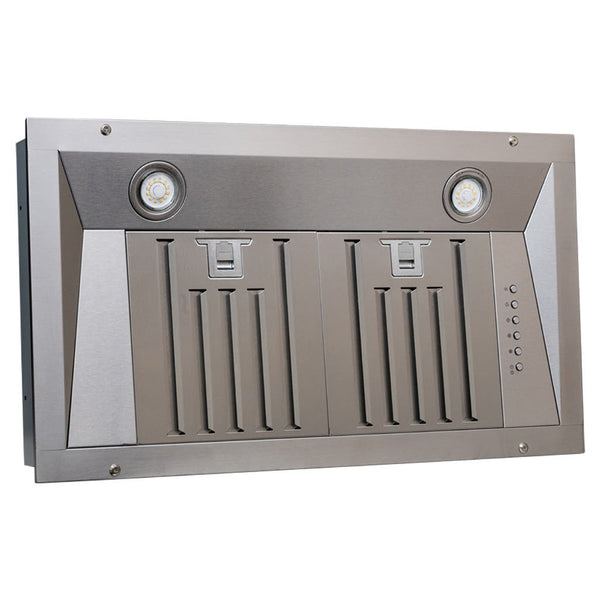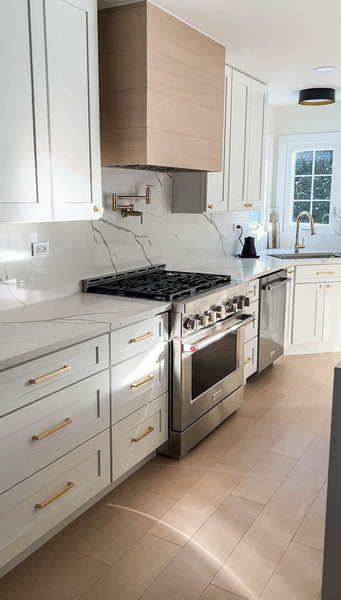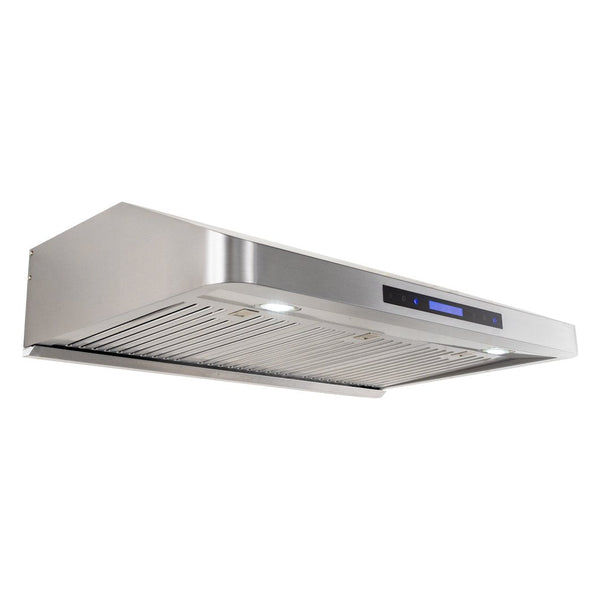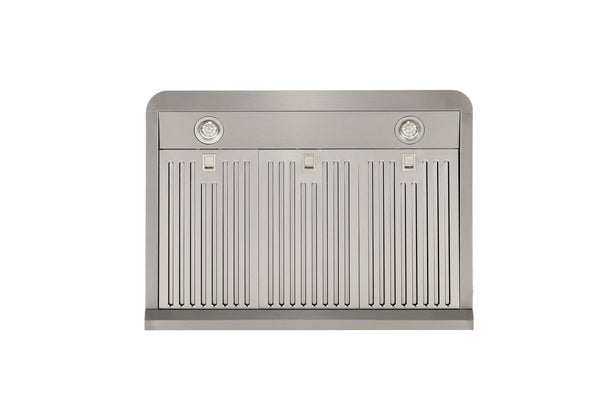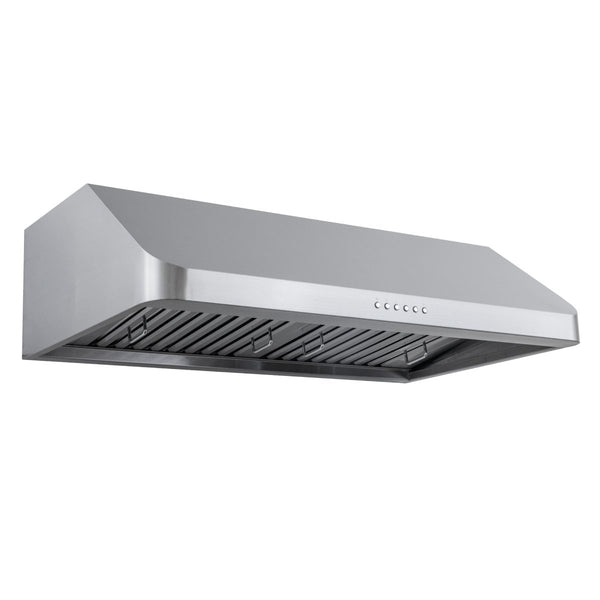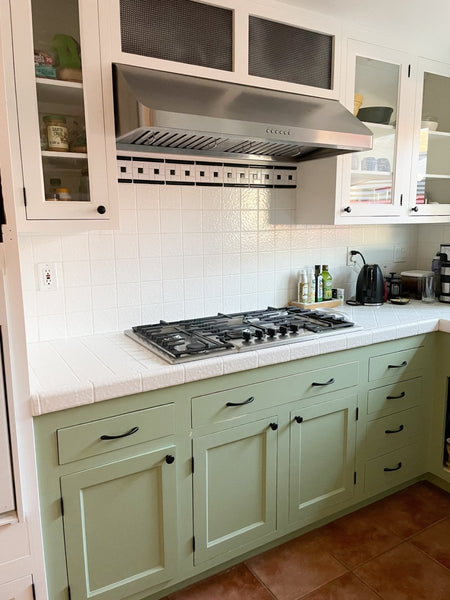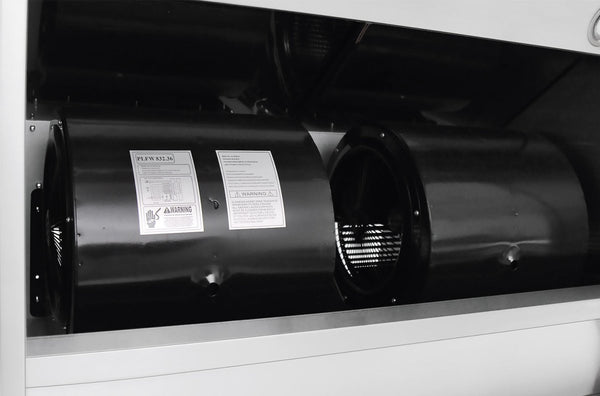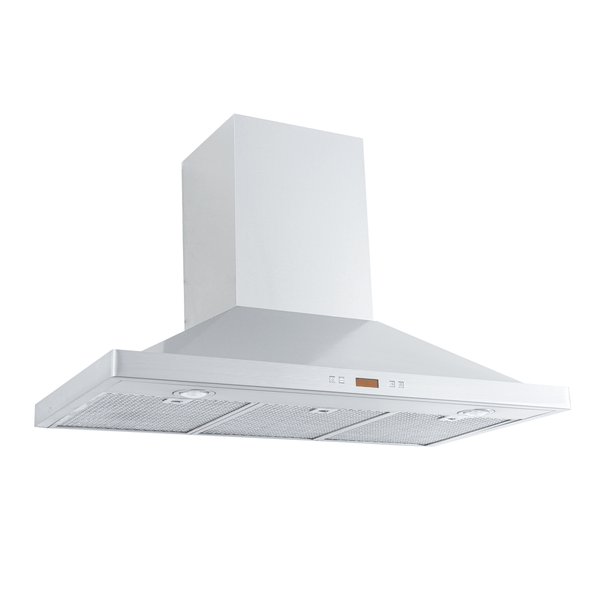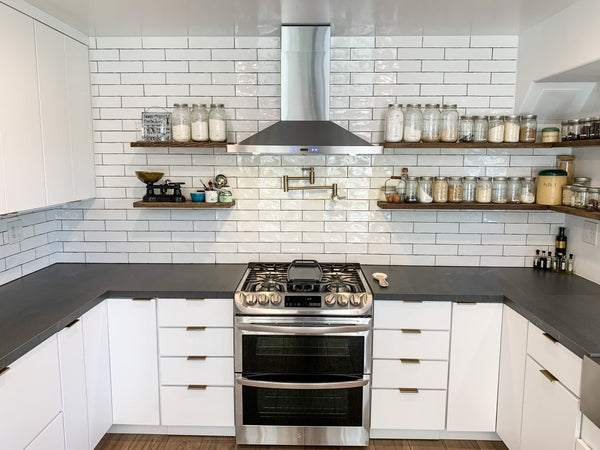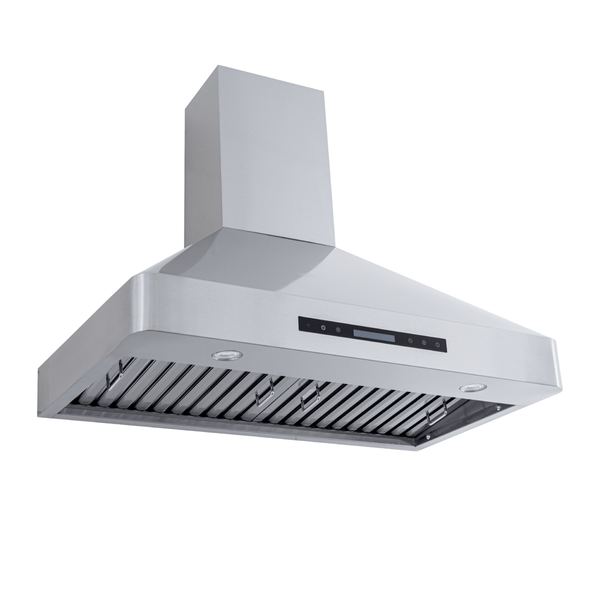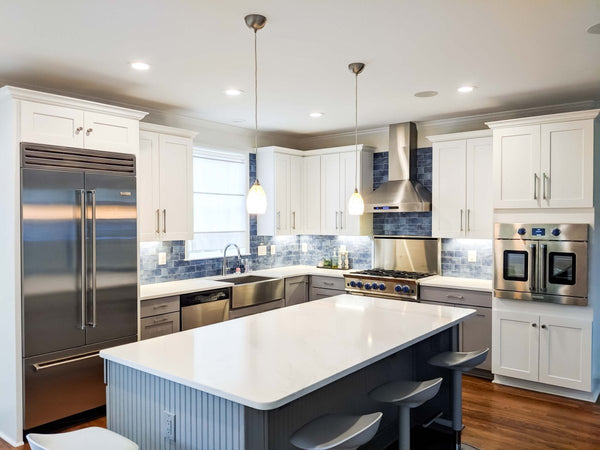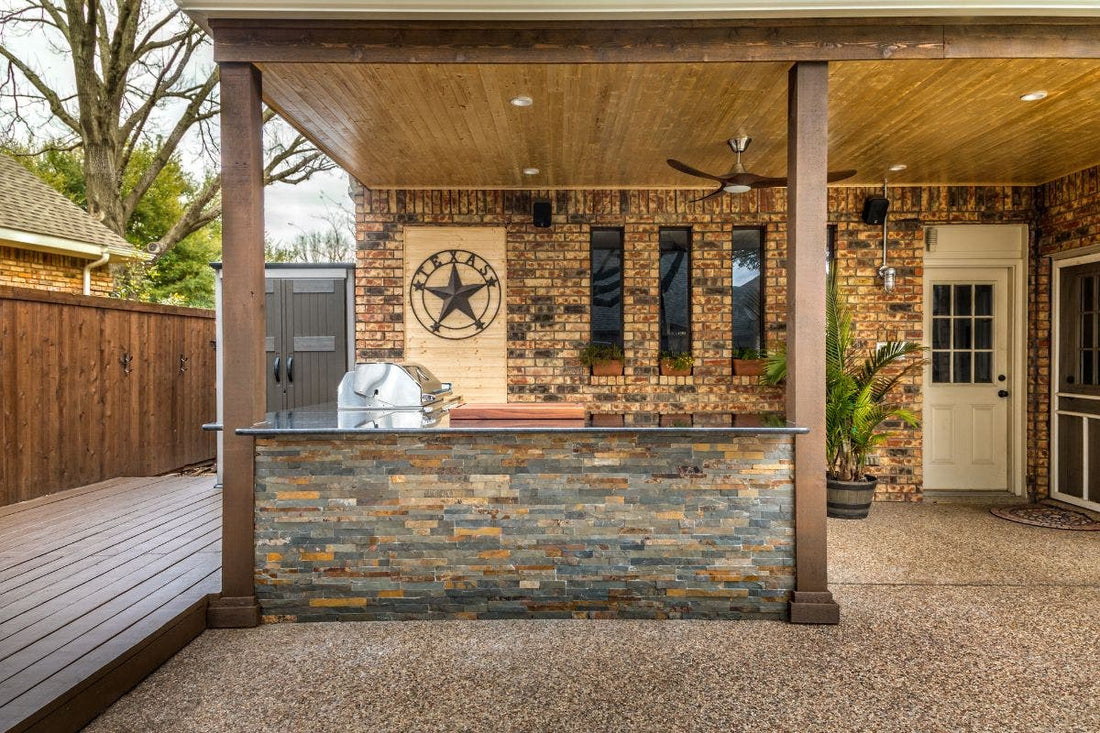An outdoor kitchen is a fantastic addition to any home and there are so many different ways to design one. When it comes to your work surfaces however you may be wondering which material to use.
We have found the 8 best outdoor kitchen countertop ideas to spruce up your kitchen to make the whole process easier for you.
Choose from one of these materials to have an outdoor kitchen to be proud of and a countertop that will last for years.
Product Reviews
An outdoor kitchen countertop needs to be a lot of things to a lot of people. It needs to be durable, so it withstands the elements, aesthetically pleasing, so it looks good to you and guests and hygienic so that it doesn’t cause anyone illness.
We’re going to look at the different types of outdoor countertops available today to help you choose the right one.
Granite Countertop
A granite worktop is ideal for an outdoor kitchen as it is extremely durable and looks great. There are many patterns, colors and thicknesses to choose from, and its structure makes it highly weather resistant.
Once it is sealed granite is also very resistant to staining so when there is the inevitable accident you won’t have to worry about permanent damage. It may get hot in the sun but won’t fade.
Pros
- Hard wearing
- Aesthetically pleasing
- Lots of colors & patterns
- Resistant to staining
Cons
- Gets hot under direct sunlight
Outdoor Stainless Steel Countertop
Despite being one of the more expensive options a stainless steel countertop will give you an amazing aesthetic for your outdoor kitchen. It is the most hygienic surface for preparing and serving food too.
Be aware that if the stainless steel countertop is not in shade it will get very hot to the touch. There is also the risk of rust in areas with high humidity, and it does tend to scratch with use.
Pros
- Very hygienic
- Easy to maintain
- Modern look
Cons
- Prone to rust in humid climates
- Gets hot in direct sunlight
Soapstone Countertop
Soapstone is a very dense material and is highly resistant to moisture and staining even without a sealant. It resists heat very well so will be fine in an unshaded outdoor kitchen and safe to put hot pans on.
Its dark color provides a dramatic effect, but it is a softer stone than others like granite so is prone to scratches.
Pros
- Non porous and resists staining
- Heat resistant
- Don’t require sealing
Cons
- Soft stone, prone to scratches
Outdoor Quartz Countertop
Quartz is a durable material and comes in a wide variety of colors, so you’ll have lots of choice. It is a non porous surface, so it is hygienic and resistant to stains. Quartz is relatively easy to maintain and provides a modern aesthetic.
It will need to be under shade however as it is vulnerable to extreme heat and cold which can cause color change and cracking.
Pros
- Durable material
- Hygienic
- Stain resistant
Cons
- May yellow in direct sunlight
- Expensive
Outdoor Tile Countertop
For a less expensive option an outdoor tile countertop will appeal to those on a budget. There are so many options in terms of style, color and design that you will be spoiled for choice. This is also a great DIY option.
Porcelain is a better choice than ceramic for outdoors as it is a much harder material. Use a grout that will expand and contract if you live in a climate of extremes.
Pros
- Inexpensive option
- Easy DIY option
- Lots of choice
Cons
- Grout may crack or stain
Concrete Countertop
Concrete is a tough material and a good choice for an outdoor countertop. Despite being a man-made product it does have a natural look.
However, it is a soft and porous material so needs to be sealed before use and regularly thereafter. If not reinforced properly it can also crack during the curing process.
Pros
- Looks natural in an outdoor environment
- Can be reinforced
- Mid-range cost
Cons
- Porous material so needs sealing
- Prone to cracking if not reinforced
Limestone Countertop
Outdoor kitchens are not always exposed directly to the elements with many being under cover. These areas are suitable for a limestone countertop as it will be protected from the weather.
Limestone is an affordable natural stone option and looks great in an outdoor kitchen. You will of course want to seal the limestone to protect it from staining and keep it looking its best.
Pros
- Durable
- Resistant to stains when sealed
- Less expensive than other natural stone
Cons
- Needs to be under cover
Bluestone Countertop
Bluestone looks great as a countertop and is very hard. However, it is highly porous and needs to be adequately sealed in order to function as a work surface. It can be used either polished or unpolished depending on the aesthetic you prefer.
As an outdoor kitchen countertop bluestone should be under cover. It will need regular re-sealing so is quite high maintenance.
Pros
- Very durable
- Great aesthetic
- Good in changeable temperatures
Cons
- Highly porous and needs to be sealed regularly
Buyer’s Guide
Before heading out to buy your outdoor kitchen countertop there are a few things you need to consider. The climate in your area, the durability of the countertops, the maintenance required, food safety, the cost and of course the aesthetics.
Let’s take a look at each of these individually and see how they may impact your decision.
Food Safety
A porous surface is the enemy of food safety. The more that a surface can absorb the higher the likelihood of bacteria thriving on it. This is why stainless steel is such a hygienic countertop as it is not porous and can be sterilized for food preparation.
Concrete countertops are not safe for food use until they have been sealed. This is something to consider if you are building a DIY concrete countertop.
Tiled countertops are probably the most difficult to keep clean for food preparation and serving due to the grouted areas.
But using cutting boards in your outdoor kitchen is just as important as using them indoors and this will reduce the chance of cross contamination.
Climate
The climate where you live will be a big factor in the suitability of your choice of outdoor countertop. Strong sunlight can cause some materials such as quartz to fade, and others, like stainless steel to get so hot they can burn you.
Freezing and thawing cycles can cause concrete countertops to crack and damage the grout in tiled countertops.
To avoid visible and structural damage to your countertops make sure you buy one that will withstand the local climate.
Durability
How you will be using the countertops in your outdoor kitchen will determine how durable they need to be. If you are going to be doing a lot of cooking they will need to be heat and stain resistant.
For buffet set ups or food preparation you will still need to make sure the surface is stain resistant, but the need for heat resistance is removed.
However, you still want your countertops to last several years so investing in a durable material will pay dividends.
Maintenance
Porous materials need to be sealed to protect them from staining and water damage. Many like concrete will require regular resealing. If the countertop is under cover then it may not need to be sealed as often.
The grout in outdoor tiled countertops may crack over time when exposed to heat and cold. It can also become stained over time and may need to be cleaned or replaced.
You will need to keep an eye on stainless steel outdoor countertops to make sure they are not falling prey to rust.
Cost
Of course your budget will rank high in your list of priorities, but it should be viewed in light of the other considerations.
Some countertops which cost less on initial outlay may attract ongoing future maintenance costs which should be borne in mind. Concrete is a good example, with lower installation costs but high ongoing maintenance with regular resealing needed.
Aesthetics
How your outdoor kitchen countertops look is of course very important to you. Take your time choosing the right material taking into account the things discussed here.
Food safety should be prioritized above anything else to protect you, your family and your guests.
The color and texture of your outdoor countertop should blend in with its surroundings. Choose a style and material that looks like it belongs in the setting rather than going for something trendy that doesn’t suit the space.
Frequently Asked Questions
What Countertop Material Is Best For Outdoor Use?
Granite is the best material overall for an outdoor countertop. It is hard wearing, durable, hygienic and looks good.
What Is The Best DIY Outdoor Countertop?
Concrete is potentially the best material for a DIY countertop as it is quite straightforward. However, you must remember to reinforce the material and seal the surface before use.
